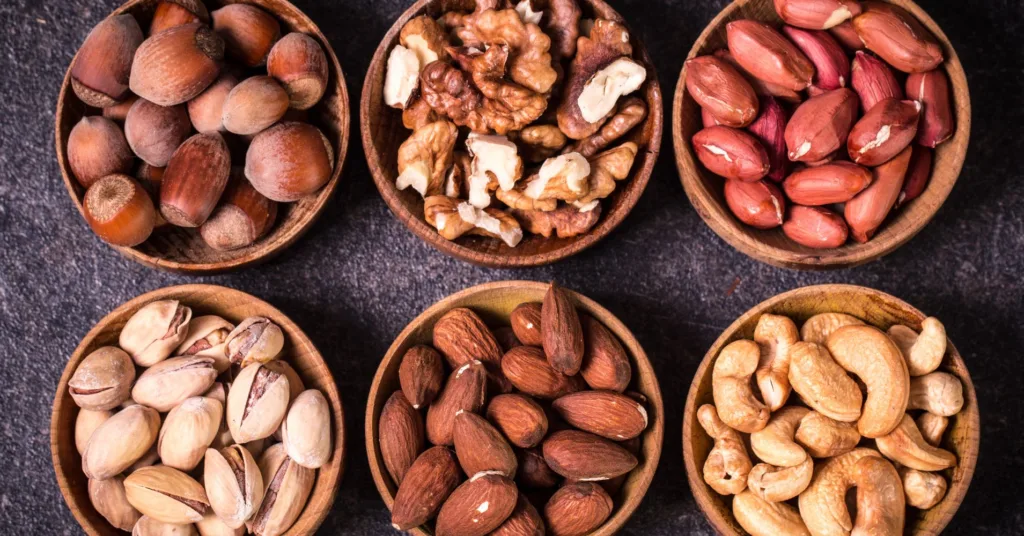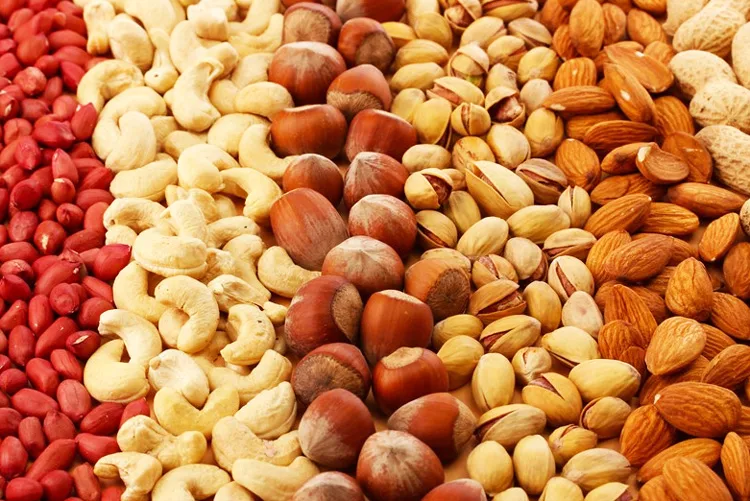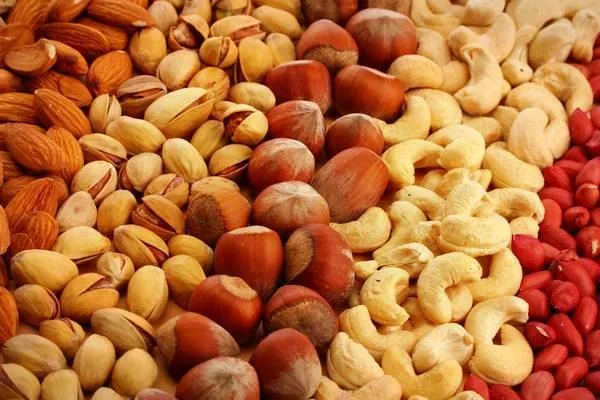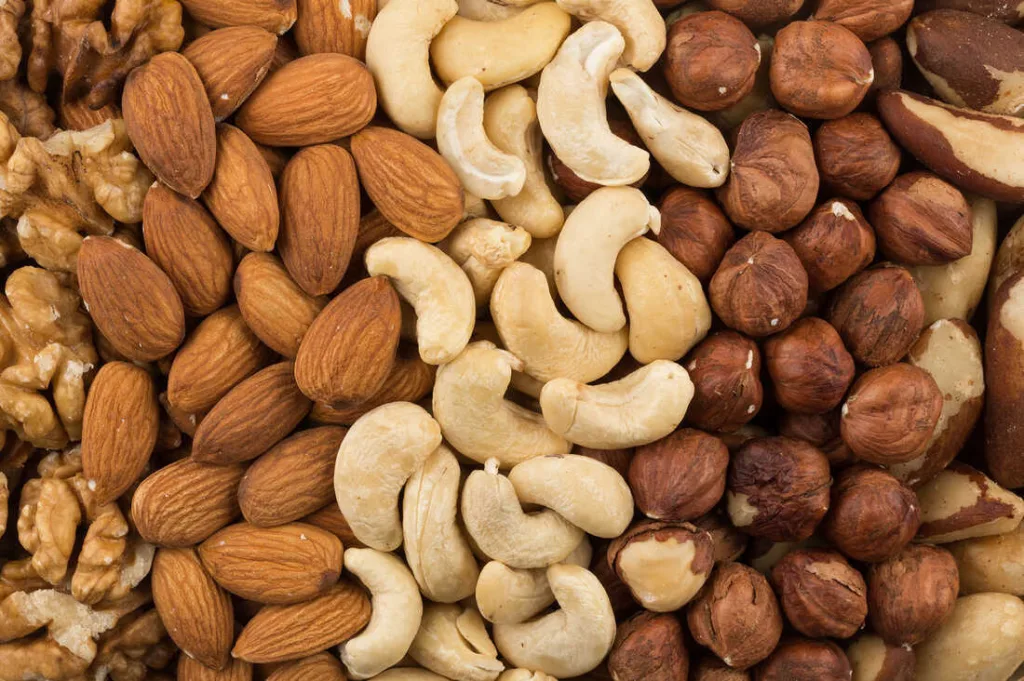For years, conventional wisdom cautioned against eating nuts when trying to lose weight. After all, nuts are high in fat and calories. However, emerging research paints a very different picture. Nuts are turning out to be powerful allies for weight loss success.
Embracing Nuts for Weight Loss: A Paradigm Shift in Nutrition
The outdated notion that nuts lead to weight gain stemmed from fears over their fat content. However, we now know that not all fats are created equal. The predominantly unsaturated fats found in nuts offer tremendous health benefits. Their unique nutritional profile, including protein, fiber, vitamins, minerals, and antioxidants, makes nuts a nutritional powerhouse.
Science continues to reveal nuts’ positive impacts on appetite, metabolism, and blood sugar regulation—all key factors for sustainable weight loss. By providing satiety, increasing resting metabolism, and stabilizing blood sugar spikes, nuts can be a secret weapon for dropping excess pounds.

Understanding the Nutritional Powerhouse of Nuts
While all nuts provide healthy fats, protein, and fiber, their precise nutritional benefits vary. Let’s examine some standouts and their nutrient-rich contributions.
Almonds
Almonds contain more calcium than any other nut. Just a handful provides 75 mg—similar to a cup of milk. The skin contains potent antioxidants like quercetin and kaempferol which protect against oxidative stress.
Walnuts
Walnuts are the only nut significantly high in alpha-linolenic acid (ALA), the plant-based omega-3 fatty acid. One ounce of walnuts provides 2.5 grams of ALA, offering anti-inflammatory benefits.
Pistachios
With higher amounts of potassium, phytosterols, vitamin B6, and lutein than other nuts, pistachios are nutrition rock stars. Their vibrant green color indicates high lutein levels, promoting eye health.
Hazelnuts
Also known as filberts, hazelnuts are rich in folate. Just one ounce delivers 20% of our RDA for this essential B vitamin. Folate is especially important for heart health and preventing birth defects.
Brazil Nuts
Brazil nuts shine for their exceptionally high selenium content. Selenium supports thyroid health, immunity, and protects against chronic diseases and cancers. Just one nut contains 96 mcg of selenium, way over the 55 mcg RDA.

Dispelling the Myth: How Nuts Can Actually Aid in Weight Loss
For decades, dietary villains like refined grains, sugar, and processed foods deservedly claimed their place in the spotlight for contributing to weight gain. However, nuts have been unfairly grouped into the fattening category despite their nourishing qualities. emerging evidence exonerates nuts as allies for shedding pounds. Here’s how nuts uniquely contribute:
Nutrient-Rich Profiles of Nuts
While calorie density attracts the most attention when assessing a food’s worth, calorie quality is equally important. Nuts score big on nutrient density. Let’s look closer at why their nutritional assets make them ideal for weight control.
A Closer Look at Nutritional Density: Vitamins, Minerals, and Antioxidants
Nuts provide an array of vitamins, minerals, and antioxidants critical for health. These nutrients are involved in everything from energy production to building hormones and neurotransmitters to nourishing healthy skin, hair, and eyes. They also protect against oxidative damage and inflammation which trigger chronic diseases. The right nutritional building blocks gives your body what it needs to function optimally.
Some prominent vitamins and minerals in nuts include:
- Vitamin E – supports healthy cell membranes and brain function
- Magnesium – involved in hundreds of metabolic reactions
- Manganese – vital for nutrient metabolism and bone health
- Copper – required for iron absorption and red blood cell formation
- Phosphorous – key for bone formation
Nuts also contain antioxidants like resveratrol, quercetin, kaempferol, and ellagic acid. These weaken oxidative stress caused by dangerous free radicals which damage DNA.
Fiber: The Unsung Hero in Nuts that Supports Satiety and Digestion
If you had to name nutrients in nuts, fiber might not spring to mind. However, nuts and seeds are one of the best sources of dietary fiber. Just a small handful of almonds, cashews, or pumpkin seeds provides 12-15% of your daily fiber needs.
Soluble fiber attracts water during digestion, forming a gel-like consistency. This slows down digestion, blunting blood sugar spikes. Slower stomach emptying also provides prolonged satiety between meals, crucial for preventing overeating.
Insoluble fiber adds bulk to stool and speeds up “transit time” in the digestive tract. This relieves constipation, promoting regular bowel movements and a healthy microbiome.
Together, soluble and insoluble fibers in nuts support satiety, blood sugar stability, and digestive health – all boons for weight management.
Healthy Fats: The Role of Mono and Polyunsaturated Fats in Boosting Metabolism
Nuts contain mostly mono and polyunsaturated fatty acids, dubbed “heart healthy” fats. Monounsaturated fats lower LDL cholesterol while raising HDL cholesterol, decreasing risk for heart disease and stroke.
Beyond beneficial effects on cholesterol levels, these fats may rev up resting metabolism. A small study in Cell Metabolism found that people who got more of their calories from monounsaturated fats burned fat quicker than people eating more saturated fats. Researchers suspect these fats’ influence on cell membranes, insulin sensitivity, and genetic expression boost fat-burning potential.
Additionally, population studies link nut consumption to less weight gain and lower obesity risk. The healthy fats in nuts appear protective against packing on unwanted pounds.
The Science of Nut Consumption and Weight Management
Emerging research reveals nuts’ beneficial impacts on appetite regulation, thermogenesis, and metabolic rate – all of which promote healthy weight maintenance.
Appetite Control: How Nuts Can Curb Cravings and Reduce Overeating
Feeling satisfied between meals is vital for weight management. Otherwise, intense hunger can trigger overeating and derail even the best intentions. Eating nuts curbs appetite by:
- Promoting satiety with protein and fiber
- Prolonging gastric emptying
- Stabilizing blood sugar dips and spikes
- Influencing hunger and satiety hormones like ghrelin and CCK
In a review in the European Journal of Nutrition, participants reported increased fullness and reduced hunger after eating nuts. Nuts also decreased desire to eat sweet or salty snacks.
In another study, people who ate a nut-rich diet versus a nut-free diet consumed over 300 fewer calories per day without actively restricting portions. Effortless appetite control leads to weight loss over time.
Thermic Effect of Nuts: The Caloric Cost of Digesting and Processing
The thermic effect of food refers to the calories burned digesting, absorbing, and metabolizing nutrients. Protein requires the most energy to break down and assimilate – 20-30% of calories consumed. Carbs and fats need about half as much, around 5-15% of intake.
Nuts contain 15-20% of calories from protein. So, a portion of their calories get “cancelled out” by the energy needed to metabolize their protein and fiber. For a 200 calorie snack, this accounts for about 25-50 calories burned.
While the thermic effect is higher for lean proteins like chicken breast, nuts offer the combined benefits of protein, fiber, and healthy fats. The varied nutrient profile maximizes the calories required for processing.
Impact on Metabolic Rate: Exploring the Link Between Nuts and Increased Energy Expenditure
Some evidence suggests adding nuts to your diet may slightly boost resting metabolic rate – the energy burned just to perform basic bodily functions like breathing, repairing cells, and circulating blood.
In one study, resting metabolism increased by 11% after 19 weeks of eating nuts daily. Researchers think increased unsaturated fat intake from nuts may explain this metabolism-revving effect.
Though the increase is modest, a faster metabolism accumulates real benefits. For a 200-pound person, an 11% jump would burn about 88 extra calories daily. That equates to 9 pounds of fat burned in one year!
Nuts and Their Role in Blood Sugar Regulation
Beyond appetite and metabolism, nuts improve our ability to process carbs and sugar thanks to their healthy fats, fiber, and amino acids. This helps avoid energy crashes and sugar cravings.
Glycemic Impact: Why Nuts Have a Minimal Effect on Blood Glucose Levels
A food’s glycemic index measures how much it impacts blood sugar. High glycemic foods like bread and cereals cause rapid glucose spikes, while low glycemic foods produce gradual rises. Though high in fat and calories, nuts have negligible effects on blood sugar.
In fact, adding nuts to high glycemic foods actually lowers the total meal’s glycemic impact. This blunts blood sugar peaks, avoiding subsequent crashes that trigger sugar and carb cravings. Stable energy promotes satiety.
Managing Insulin Sensitivity: Nuts’ Potential to Stabilize Sugar Spikes
Rapid swings in blood glucose and insulin are detrimental over time, often contributing to insulin resistance. This makes weight management extremely difficult.
Thankfully, nuts improve our cells’ sensitivity to insulin. This means they help transport glucose from the bloodstream into cells where we need it for energy. Steady insulin sensitivity prevents dangerously high blood sugars and exaggerated insulin responses.
Nut-Insulin Connection: Investigating Nuts’ Influence on Insulin Signaling Pathways
Researchers are still investigating the mechanisms behind nuts’ beneficial effects on insulin resistance. Current evidence suggests:
- Arginine in nuts may trigger insulin secretion while improving sensitivity
- Lipids and phenols interact with cell-signaling pathways involved in metabolism
- Improved endothelial function and anti-inflammatory effects enhance insulin sensitivity
By stabilizing erratic blood sugar changes, nuts help avoid subsequent rebound hunger and overeating. Their ability to optimize insulin’s efficiency aids long-term weight control.
Practical Incorporation of Nuts into a Weight Loss Strategy
Convinced of nuts’ merits for managing your weight? Next comes the fun part – enjoying their versatility in meals, snacks, and more! Here are some tips for incorporating nuts into your regimen:
Portion Control: Navigating the Balance Between Nutrient-Rich and Caloric Density
At 160-200 calories per ounce, nuts pack a lot of energy in small amounts. Portion control is key so their calories don’t go overboard. Here are suggested serving sizes:
- Almonds, cashews, peanuts, pistachios: 1 ounce or 23 nuts
- Walnuts: 9-14 halves
- Hazelnuts: 20 nuts
- Pecans: 15 halves
- Brazil nuts: 3 nuts
When in doubt, a handful is a reasonable serving that delivers nutrients without excessive calories.
Culinary Creativity: Delicious Ways to Include Nuts in Meals and Snacks
Beyond enjoying nuts raw, get creative with these nutritious additions:
- Sprinkle on oatmeal, yogurt, and salads
- Mix into whole grain pilafs, stuffings, and breads
- Blend into smoothies or homemade nut butter
- Try nut-based vegan cheeses, milks, and yogurts
- Replace croutons with candied nuts on salads
- Crust chicken, fish, or tofu with chopped nuts
Homemade trail mixes, energy bites, granola bars, and nut-based crusts also make healthy high-protein snacks.
Nut Allergies and Substitutes: Exploring Alternatives for Those with Allergies
For those with nut allergies, seeds offer similar benefits. Pumpkin, sunflower, sesame, flax, and chia seeds provide healthy fats, protein, minerals, and fiber. Seed butters like sunflower or pumpkin spread are also excellent alternatives.
Those without allergies can still rotate through different nuts and seeds to vary nutrients. Variety maximizes your exposure to a broad spectrum of vitamins, minerals, antioxidants, and phytochemicals.

Embracing Nuts as a Holistic Approach to Weight Management
While nuts shouldn’t be viewed as a “free pass” for overindulging, we now recognize their unique mechanisms for weight loss success when eaten in judicious amounts. Their combined benefits – from vitamin density and healthy fats to appetite regulation, metabolism, and blood sugar control – make nuts a worthy addition to your regimen.
Reaping the Benefits: From Nutrient Density to Satiety and Beyond
Remember, reasonable portions maximize nuts’ perks. Let nuts help curb appetites between meals, provide lasting energy, and deliver a powerhouse of nutrients. Allow their versatility to enhance your favorite meals and snacks. Before long, you’ll realize nuts are allies in your weight loss journey.
A Nutty Future: Empowering Your Journey to Sustainable Weight Loss
Still have fears that nuts lead to weight gain? We invite you to give them another look. Let science debunk the myth that nuts make you fat. You have nothing to lose and lots of nutritional benefits to gain. We’re thrilled to help you discover how nuts can joyfully support healthy, sustainable weight management.
Stay Informed: Subscribe to Our Free Newsletter for Regular Updates
Want to stay current on the latest weight loss research on nuts and other superfoods? Subscribe to our e-newsletter to have helpful articles delivered right to your inbox each month. Staying informed gives you an edge for success.

Personalized Guidance: Book a One-on-One Free 10-Minute Diet and Nutrition Meeting
Along with subscribing to our newsletter, you can schedule a free 10-minute video call with our Registered Dietitian for personalized guidance. Ask questions, learn about custom meal planning, and gain motivation on your path to weight loss achievement. Let’s connect!
Dive Deeper: Explore More Related Posts for Comprehensive Wellness Insights
Scroll through our blog to uncover a wealth of resources on evidence-based nutrition strategies. Beyond nuts, you’ll find posts on intuitive eating, whole food recipes, stress management, exercise tips, and so much more. Knowledge plus action propels powerful transformation. Start reading and get equipped to reach your health goals!
Thank you for reading this post, don't forget to subscribe to our free newsletter
!